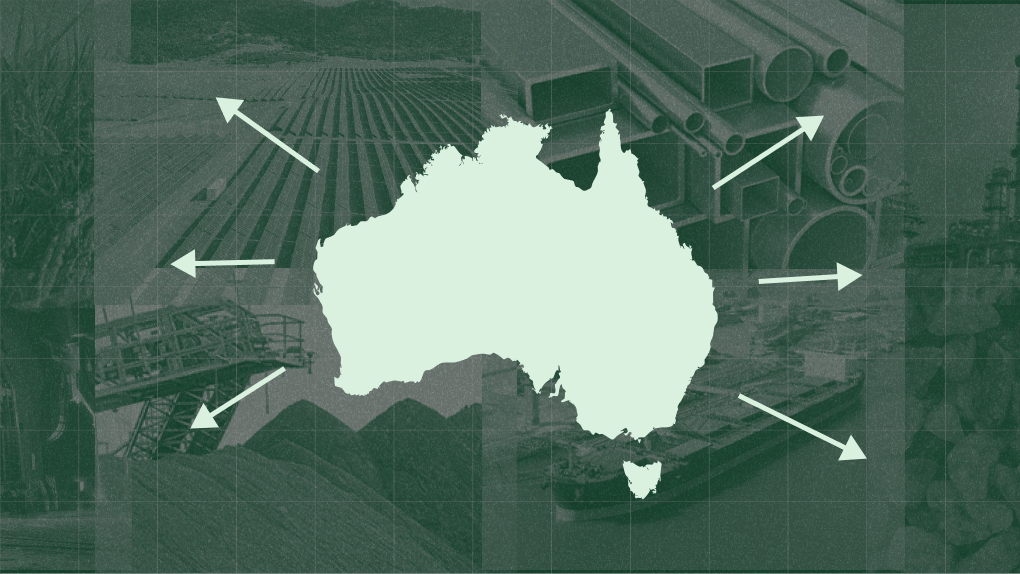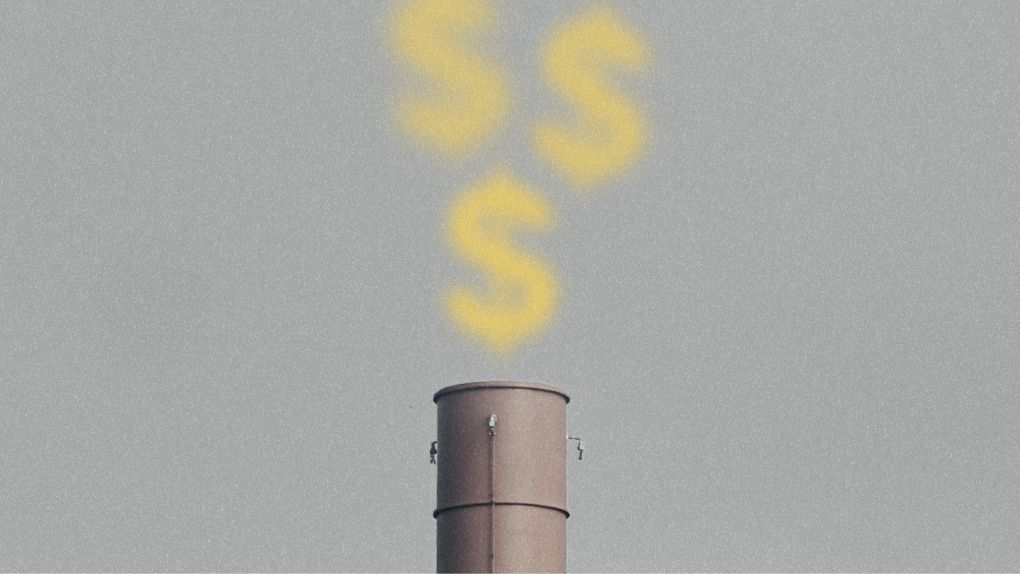Thank you for the opportunity to speak today at this important event.
There is a green policy race and it is vital that Australia is among the winners, for two reasons. First, the future of the world’s climate likely depends on Australia realising its Superpower potential. Second, realising our Superpower potential will underpin Australian prosperity for decades.
Today I will:
- Outline the role of international trade in the world achieving its climate objectives.
- Talk about the implications of a lack of a world carbon price.
- Describe what a growth agenda for Australia looks like, particularly the Future Made in Australia program.
On Monday 18 November in Canberra, The Superpower Institute (TSI) will launch “The new energy trade: harnessing Australian renewables for global development”, by Dr. Reuben Finighan, one of TSI’s brilliant young economists.
This is groundbreaking work of immense importance to Australia and the world.
In the report Reuben states: “Future clean electricity demand is underestimated by most analysts. The sufficiency of cheap clean electricity is overestimated. In a few fortunate countries, exceptional renewable resources are effectively unlimited; the supply curve is low and flat. This difference in energy availability will drive mutually beneficial trade.”
Reuben analyses the future supply and demand for clean energy in great detail in a number of important countries, including Australia’s key trading partners.It is the first time this work has been done anywhere in the world.
His work shows that, at varying times over the next one to two decades, Australia’s key trading partners will not have sufficient inexpensive green energy to underpin their household and industry demand. In economic terms their green energy supply curves will increase, sometimes sharply, as more expensive supply is required.Australia has in practical terms an endless supply of low-cost renewable energy.
Reuben says “The new energy trade will differ markedly from the fossil fuel trade. Exporting clean energy as hydrogen or ammonia is extremely costly. Clean energy will be exported as energy embedded in energy-intensive products, including iron/steel, aluminium, silicon and polysilicon, ammonia and urea, and green fuels for shipping and aviation.”
The world needed the export of fossil fuels from countries that had a surplus to countries that had little or no fossil fuel.Imagine how the world would have looked without this trade. Many countries could not have developed.
Likewise, the world cannot decarbonise without the trade Reuben talks of.And Australia’s role is crucial. Australia should be supplying green products that will involve global emissions reduction of up to 10%. If we do not do this, it will be significantly more expensive and politically challenging to meet the world’s climate ambitions.
Everyone interested in climate change must read Reuben’s report.And, if you can, come to the Canberra launch on the 18th. To do so please email us on the TSI contact page for the invitation details.
We all hear of green projects that cannot proceed because they aim to produce products that are not competitive with products produced using fossil fuel. When these projects seek to have this price gap addressed by the Government they are accused of wanting handouts; if the Government considers providing them they are accused of indulging in damaging or speculative industry policy.
What rubbish.
Let’s reframe the problem. All countries for the time being accept that global warming is due to human activity, essentially carbon emissions from burning fossil fuels. Authoritative atmospheric physics leaves no room for doubt.This means that, in the most standard of economic terms, burning fossil fuels creates a negative externality that should be priced. That is, in producing products with fossil fuels companies are imposing significant costs on others which they should pay for.
Indeed, trying to reduce world emissions without a carbon price is economic silliness. If we want to significantly reduce carbon emissions, why do we not want to adjust market incentives to achieve this efficiently? We seem to want to rely on corporate goodwill or administrative directives, which are inevitably messy and will always face continuing challenge.
It can easily be said that unless countries impose a carbon price they are not serious about reducing emissions. Relying on voluntary commitments to reduce emissions is as likely to be effective as relying on voluntary taxation is to fund defence.
International studies show that Australian is one of – if not the best – place to make green iron. I am aware of studies that show that green iron would be competitive with iron using fossil fuels if there were a carbon price imposed at European carbon price levels.
A potential green iron project seeking compensation for the lack of a carbon price is not wanting a handout; it is merely wanting a level playing field.
Ross Garnaut and I have proposed a Carbon Solutions Levy for Australia under which companies extracting fossil fuels will pay a levy, based on the European carbon price, on all the emissions from their products no matter where they occur. The construction of the scheme is meant to encourage other countries to have a carbon price.
Not only does it mean Australia’s gas and coal projects would then be paying their way, but the revenue raised would benefit all Australians including through significant cost of living relief.
We constantly hear in our main newspapers that Australia needs a growth agenda, and that it needs an agenda focussed on boosting productivity.
There is one.
It is outlined in the Net Zero Transformation Stream of the Future Made in Australia.
Treasury’s Public Interest Framework represents sound economics and provides guidelines for deciding which industries to support, that is, those where Australia has a comparative advantage, and how to support them by addressing clear market failures. Government support in the energy transition should focus on compensating for the lack of a carbon price; providing support for early stage projects where the initial costly learnings will help later projects; and supporting common user infrastructure where the private sector players will build only for their own needs and not for later players.
There has been support for hydrogen projects under this heading.I have found the hydrogen debate frustrating.
Some have said hydrogen should be a source of energy, but of course you need a lot of energy to make it. Some have said Australia should export hydrogen, but I think this will be some time away; countries need to exhaust their own sources of clean energy before resorting to this expensive option.
Instead, hydrogen is immediately needed for its chemical properties as a crucial ingredient for producing green iron, fertiliser, transport fuels, and other products. That is, use it in Australia as an intermediate good to produce high value green export products.
The Government is consulting on policies to make green metals and green transport fuels in Australia. Given the lack of a world carbon price such policies will be expensive. But such policies clearly will make the biggest Australian contribution to reducing world emissions, and will underpin future Australian productivity and prosperity.
One way to lower the cost to Australia of such policies is to move towards a shared carbon price between the exporting and importing countries. Countries can share the compensation to cover the green premium.International cooperation will be vital as the world decarbonises.
To succeed, Australia also needs to pursue complementary policies.
We need free trade, including with China as a source of low cost solar panels, wind equipment and batteries. After all, we aim to pursue an export strategy.We need responsible fiscal policy to ensure low interest rates given green energy intensive exports are capital intensive. These two points mean we do not want to follow the US in its protectionist Inflation Reduction Act policies.
We also need much faster project approval decisions.Even if a project is to be rejected, let’s find out in an efficient way.
I understand some are put off the Future Made in Australia agenda because it sometimes appears to say we want to make things in Australia for its own sake, whatever the cost. Such an approach can appear ad hoc, without any underpinning logic.
I also get that if you think the world will not decarbonise you think there will not be a sufficient market for our green energy intensive products.
But Australia can change this view if we start producing green iron, green aluminium, green fertiliser and green transport fuel.Australia can show the world what is possible.
Now a message to investors.
Please get behind the Future Made in Australia program, but be clear you are supporting its economic logic of addressing market failures, and particularly green energy intensive exports, and not supporting Government funding to make things in Australia for its own sake.
And tell Australians about your project and its potential.Repeat the message that Australia is spectacularly well placed to be a green energy superpower, while our trading partners are not.Australians need to understand the size of the prize if we get our policies right.
As a final note, I have written this without knowing the result of the US election. If Mr Trump wins this will remove America from serious climate action for at least a few years. If this happens Australia must then line up with countries that support climate action.The international order must press ahead. The US can rejoin the ranks of like-minded countries when it is ready to do so.
Thank you for your time today.
Rod Sims
Chair, The Superpower Institute
Rod Sims AO is a Professor at ANU, Chair of Opera Australia and Chair of the National Data Advisory Committee. He previously chaired the ACCC (2011-2022), served as Deputy Secretary (Economic) in the Department of Prime Minister and Cabinet, and Principal Economic Adviser to PM Bob Hawke (1988-1990).
Rod Sims AO is a Professor at ANU, Chair of Opera Australia and Chair of the National Data Advisory Committee. He previously chaired the ACCC (2011-2022), served as Deputy Secretary (Economic) in the Department of Prime Minister and Cabinet, and Principal Economic Adviser to PM Bob Hawke (1988-1990).



